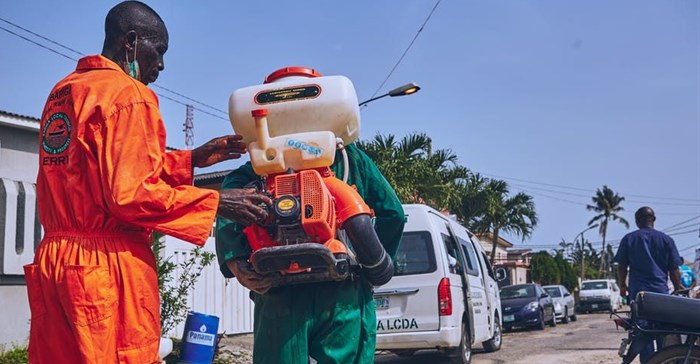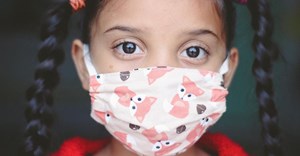Coronavirus: what Nigeria can do post lockdown

Nigeria is no exception. In Africa, it is among the countries with the highest number of cases. While the numbers remain low compared with many other countries in the world, it continues to rise gradually. Worryingly, the mortality rate stands at 3.1%. This is higher than some of its neighbours. For example, Ghana, which has a similar age demography and socioeconomic characteristics, is reporting a mortality rate of 0.5%.
For Nigeria, the decision to ease the lockdown on 4 May was a compromise between the heavy economic costs – including the hardship on citizens who depend on daily earnings – and the choice to contain a public health emergency.
The decision on ‘if’ or ‘when’ to ease the lockdown in any country due to the Covid-19 pandemic will always be a difficult one.
Now that Nigeria is gradually easing restrictions, the main question is what realistic public health measures can be taken to ensure infection, and fatality rates, remain at the low end of the spectrum?
To answer this question, the need for reliable data cannot be over-emphasised.
Planning without data
Accurate data should be the basis for any decision making. But this is proving difficult in Nigeria. This is for a number of reasons.
The first thing that needs to change is Nigeria’s disjointed coordination of data for evidence-based decision making. For example, the time lapse between sample collection and test results received for suspected cases sometimes exceeds the approximately two week recovery period for mild cases of the disease, instead of the 48 hours benchmark.
Although shortages of materials, especially reagents, was the reason given, such delays make it difficult to monitor the spread and intensity of the disease in Nigeria. And suspected cases not under strict isolation are able to continue to spread the virus while awaiting their results.
Secondly, Nigeria has very low testing numbers. According to the Nigeria Centre for Disease Control, 60,825 tests had been conducted as at the end of May 2020, in a population of over 200 million people. In comparison, Ghana, whose population is about 30 million, has conducted over 200,000 tests.
This suggests there could be a gross underestimation of the number of positive cases at any given point in time when the high proportion of asymptomatic and mild cases is put into the equation.
There is also the possibility of double testing and counting – where people visit more than one test centre due to delays in receiving test results. In the United Kingdom, public health officials admitted to double counting the nasal and saliva samples of the same patient.
Ambitious testing targets set by countries including Nigeria may account for this too. This can pose the challenge of over-estimation of positive cases.
An underestimation or overestimation of positive cases allows for a false infection fatality rate which is calculated as the number of deaths (numerator) divided by the number of people infected (denominator) x 100. The fatality rate being presented depends largely on number of tests done and counting of positive tests.
Nigeria is at a stage of ongoing community transmission. This means that densely populated local government areas and states are at higher risks of transmission.
What to do next
There are some immediate steps that the country should take on top of reminding citizens about physical distancing, good hand and respiratory hygiene.
Firstly, efforts to reduce the spread need to be decentralised. This includes increased testing and setting up more isolation centres within the local government areas.
Also, risk communication, continuous surveillance, monitoring and evaluation must be scaled up. Cascading these interventions to the community level will increase effectiveness and efficiency.
Other recommendations given the country’s peculiarities include:
- Making mobile sample collection vehicles and points available. These vehicles are three-wheeler kiosks that can navigate through the community without difficulty. This method fast-tracks sample collection for Covid-19 tests within wards and local government areas.
- Increasing capacity of testing sites in the various states so that there is at least one laboratory in each of the 36 states of the federation. Currently, there are 28 functional laboratories for Covid-19 testing in the country and only three states have more than one.
- Giving clients the results of their tests within 48 hours at the maximum. This will be attainable with an uninterrupted supply chain of medical supplies such as reagents, consumables and the provision of technical support and continuous training for adequate manpower.
- Isolating confirmed positives, triaging to mild, moderate and severe cases – a process of sorting people based on their need for immediate medical treatment. This will ensure that the treatment centres are not overwhelmed.
- Ensuring continuous training of health personnel to operate isolation centres, training of private health care facilities on high index of suspicion of cases, and well disseminated protocol on referral of suspects.
- Coordinating sample and test result triangulation in all testing centres to avoid double counting.
- Tailoring lockdown approaches to suit affected local government areas and communities.
- Flexibility in the adaptation of general best practices and funding of research for home grown solutions.
An opportunity to raise the bar
Covid-19 presents Nigeria with an opportunity to properly invest in strengthening its primary health care system. The health centres need to be properly equipped while health workers should be armed with adequate personal protective equipment. This will enable them to discharge their duties without the fear of being at risk of contracting the virus.
Within the context of a strengthened primary health care system, a rapid process of sample collection, result verification and contact tracing can be developed for the management of Covid-19 in post-lockdown Nigeria.
Overall, Nigeria should embark on a health sector reform and concentrate on the core values of equity, efficiency, quality, financing and sustainability in the provision of health care.
This article is republished from The Conversation under a Creative Commons license. Read the original article.![]()
Source: The Conversation Africa

The Conversation Africa is an independent source of news and views from the academic and research community. Its aim is to promote better understanding of current affairs and complex issues, and allow for a better quality of public discourse and conversation.
Go to: https://theconversation.com/africa





















